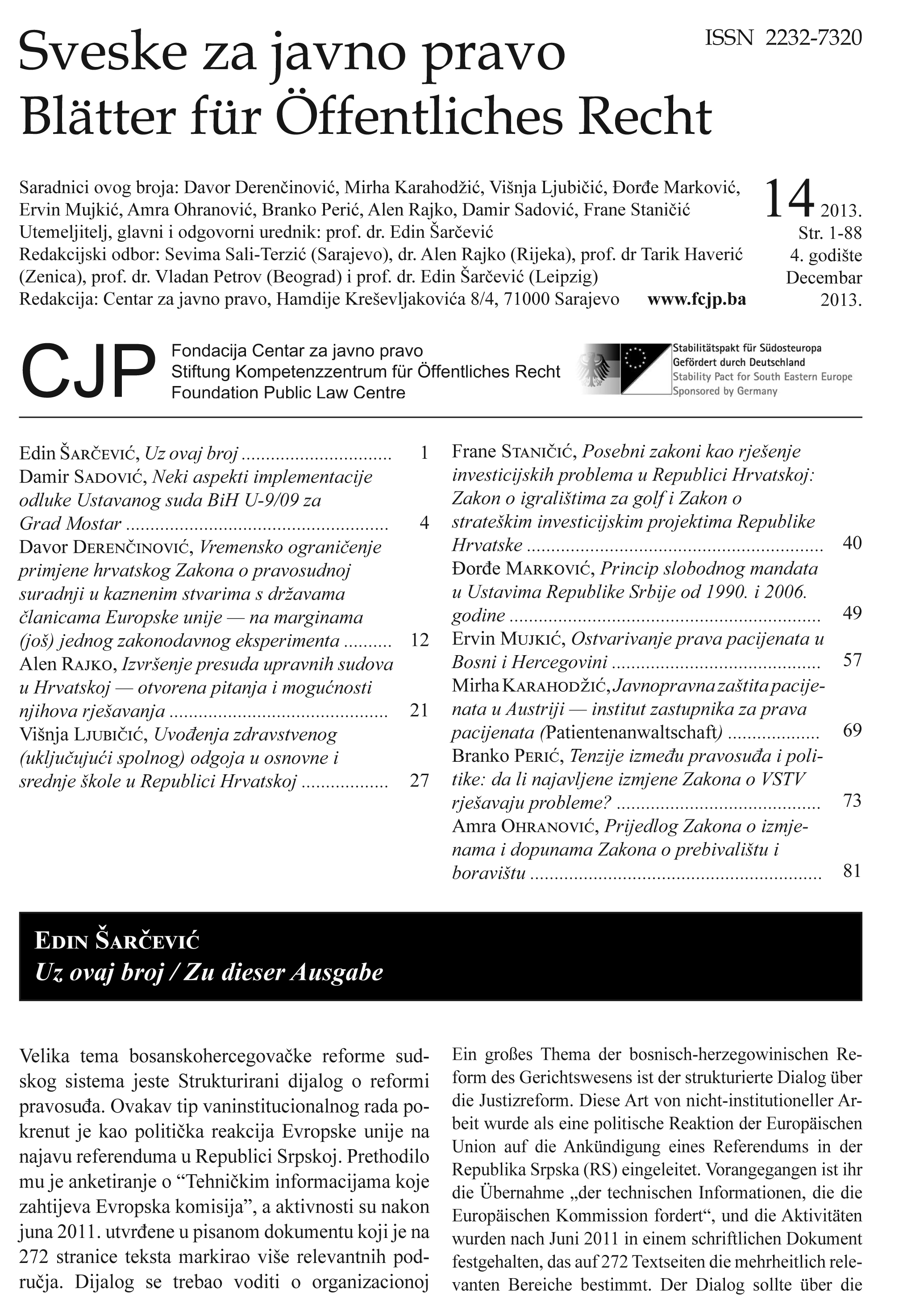Princip slobodnog mandata u Ustavima Republike Srbije od 1990. i 2006. godine
The principle of free mandate in the Constitutions of the Republic of Serbia from 1990 and 2006
Author(s): Đorđe MarkovićSubject(s): Law, Constitution, Jurisprudence, Constitutional Law, Civil Law
Published by: Fondacija Centar za javno pravo
Keywords: Constitution democracy; Republic of Serbia; Constitution; Law;
Summary/Abstract: The Constitution principle of a free parliamentary mandate is one of the basic principles of modern constitution democracy. This principle guarantees to national deputies independence from outside influences, in fact their freedom of conscience. Nevertheless, if we consider political reality, the main forces in the modern parliaments are political parties. However, the Constitution should provide freedom for deputies’ actions in the parliament, because this principle is their’s the first and the last defence. With the Constitution from 1990, the Republic of Serbia reestablish the liberal-democratic type of constitutionality. Despite this, the Constitution didn’t define explicity the legal nature of relation between the voters and their elected representatives. This vagueness caused a number of problems in the functioning of the National Assembly in the period from 1990 to 2006. It was expected that the new Constitution will put an end to doubts about the nature of parliamentary man-date, but this did not happen. Unfortunately, the party imperative mandate became a constitutional category, which is a step backwards compared to the Constitution from 1990 (Article 102, paragraf 2). From the moment of adoption of the Constitution from 2006, began the struggle of political parties to usurp the sovereignty and to subordinate authority itself.
Journal: Sveske za javno pravo
- Issue Year: 4/2013
- Issue No: 14
- Page Range: 49-56
- Page Count: 8
- Language: Bosnian, Croatian, Serbian

